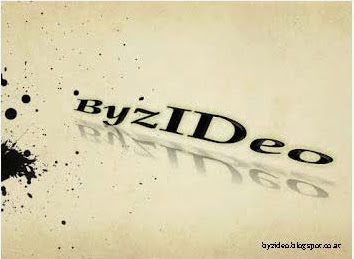Georgios Pachymeres, Philosophia, Book 3. In Aristotelis de Caelo Commentary. Editio princeps. Prolegomena, Text, Indices byIoannis Telelis. [Corpus Philosophorum Medii Aevi. Commentaria in Aristotelem Byzantina, No. 7], Athens: Academy of Athens,2016a
This volume offers a critical edition of the third book of Georgios Pachymeres’ Philosophia (early 14th c.), the voluminous philosophical work in which the Byzantine erudite and polyhistor attempted to epitomize the most important works of the Aristotelian philosophy by paraphrasing and commenting on them. Philosophia book 3 deals with Aristotle’s De Caelo treatise. The Prolegomena of the edition (p. 1*-156*) includes a set of seven chapters where a wide range of information and topics related to the edited text is provided and discussed. Ch. 1 provides the state of the art on the Byzantine author’s philosophical activity, the content and context of Philosophia, the position of book 3 in the framework of the work, and a brief presentation of Aristotle’s De Caelo content. Ch. 2 offers a comprehensive overview of the content of the separate sections and chapters of the text, as well as an analysis of the philological methods and practices adopted by Pachymeres in his synthesis. Ch. 3 presents the differences between the two main manuscripts of Philosophia manuscript tradition on the basis of book 3, an exploration of the possible Aristotelian exemplar of Pachymeres’ text on the basis of common and variant readings between Aristotelian passages and the textual transmission of the De Caelo, as well as data concerning the reception of the text in two later works of the 14th c. Ch. 4 investigates the paratextual material of the text, i.e. marginal notes, supplementary figures and diagrams. Ch. 5 focuses on topics related to grammatical and lexical peculiarities of the text. Ch. 6 explains the principles and conventions adopted for the constitution of the text and the construction of the different apparatuses, and the bibliography cited in the Prolegomena appears in ch. 7. The original text (p. 1-84) is accompanied by three apparatuses: Apparatus aristotelicus, fontium and criticus. Three indices (Index nominum propriorum, verborum and locorum), and Facsimiles of selected manuscript folia close the volume.
 |
| CONTENTS |
This volume offers a critical edition of the third book of Georgios Pachymeres’ Philosophia (early 14th c.), the voluminous philosophical work in which the Byzantine erudite and polyhistor attempted to epitomize the most important works of the Aristotelian philosophy by paraphrasing and commenting on them. Philosophia book 3 deals with Aristotle’s De Caelo treatise. The Prolegomena of the edition (p. 1*-156*) includes a set of seven chapters where a wide range of information and topics related to the edited text is provided and discussed. Ch. 1 provides the state of the art on the Byzantine author’s philosophical activity, the content and context of Philosophia, the position of book 3 in the framework of the work, and a brief presentation of Aristotle’s De Caelo content. Ch. 2 offers a comprehensive overview of the content of the separate sections and chapters of the text, as well as an analysis of the philological methods and practices adopted by Pachymeres in his synthesis. Ch. 3 presents the differences between the two main manuscripts of Philosophia manuscript tradition on the basis of book 3, an exploration of the possible Aristotelian exemplar of Pachymeres’ text on the basis of common and variant readings between Aristotelian passages and the textual transmission of the De Caelo, as well as data concerning the reception of the text in two later works of the 14th c. Ch. 4 investigates the paratextual material of the text, i.e. marginal notes, supplementary figures and diagrams. Ch. 5 focuses on topics related to grammatical and lexical peculiarities of the text. Ch. 6 explains the principles and conventions adopted for the constitution of the text and the construction of the different apparatuses, and the bibliography cited in the Prolegomena appears in ch. 7. The original text (p. 1-84) is accompanied by three apparatuses: Apparatus aristotelicus, fontium and criticus. Three indices (Index nominum propriorum, verborum and locorum), and Facsimiles of selected manuscript folia close the volume.
ACADEMY OF ATHENS DISTRUBUTION IN GREECE: THE ACADEMY
OF ATHENS BOOKSTORE PANEPISTIMIOU 25-29, GR-106 79 ATHENS, TEL. +30-210-3239381
FOREIGN DISTRIBUTOR: LIBRAIRIE PHILOSOPHIQUE J. VRIN 6 PL. DE LA SORBONNE, F -
75005 PARIS






